 |
|
  05.23.04 05.23.04
click to enlarge
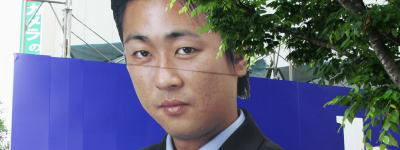

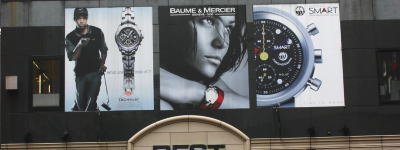
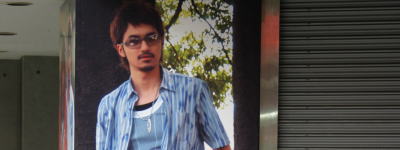
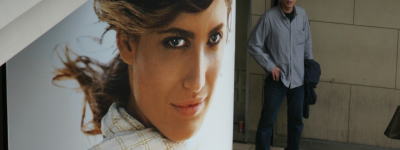
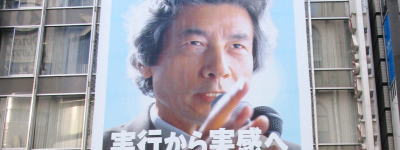
Some great news: A kaiten sushi restaurant (sushi on a conveyor belt) just
opened in the new mall up the street from
our house. I can't wait to go and gorge myself.
I can see it now: tuna sushi in one hand,
salmon sushi in the other, and an enormous
stack of plates spread before me like the
scattered bodies of soldiers after a battle.
Maybe they'll just let the conveyor belt
run directly into my mouth,... sometimes
I feel I could really go for that.
Recently I have become a raw tuna maniac.
I snack on it at home with beer. I have it
for lunch when I'm out about town, and I
have it as a side dish when I go for dinner.
I don't know what it is about the stuff,
it's like marine crack for me.
  05.18.04 05.18.04
click to enlarge
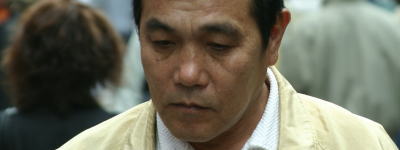
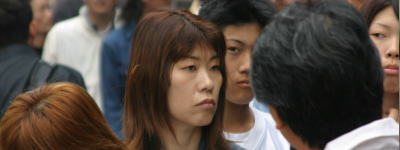
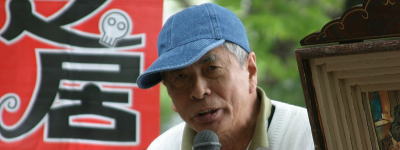
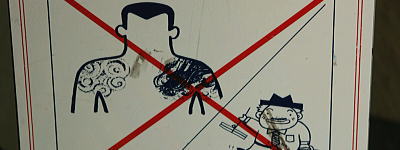
People often write to me and ask me questions
about working in Japan. They want to know
about things like visas and language skills,
working hours and taxes. I usually just give
them some general advice, point them in the
right direction, and wish them luck because,
quite honestly, I'm not much of an expert
on working in Japan.
However, the next time that someone asks
me about what kind of work they can do here,
I'll just have to tell them about a new type
of job I discovered--virgin deflowering. Unfortunately, it doesn't pay anything,
but man would it ever look great on
your
resume.
Sometimes people want to know about office
culture and work life. My advice is usually
just to be yourself, that is unless you're
a loud talker who is prone to excessive gesticulation,
in which case, try to be somebody else. You
may get away with being a brute in the office,
but whatever you do, don't strip down naked while dancing and singing karaoke at a get-to-know-you
party for the company's clients.
  05.14.04 05.14.04
click to enlarge
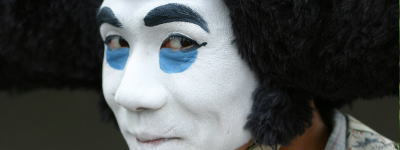
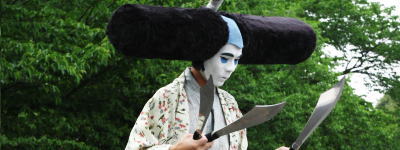
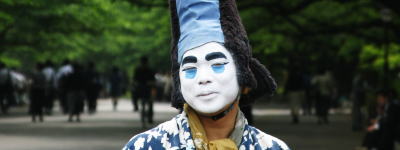
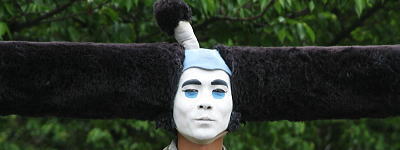
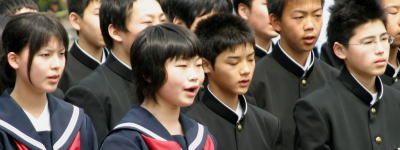
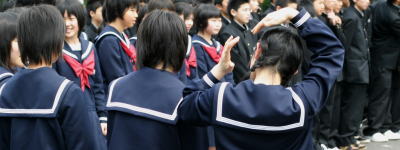
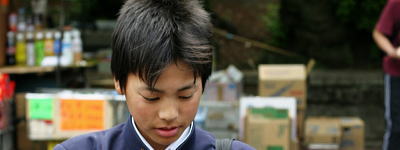
The recent Iraqi prisoner abuse scandal has
really impressed upon me the power of photography.
It has made me want to be a photojournalist.
The now infamous photographs--like the one
of the hooded man standing on the box with
electrical wires clipped to his fingers;
or of the naked man cowering from attack
dogs--allow you to empathized so strongly
with the victims that the whole idea of torture
and abuse is understood in a new way. The
photographs turned the abuse from something
that had previously been intellectualized
into something that was 'emotionalized',
i.e., understood in an emotional way rather
than an rational one.
For a long time before the scandal unfolded,
I think that it was more or less known, or
at least suspected, by people on both sides
that prisoners were being abused, mistreated,
and tortured, but we all accepted it with
a shrug and a sigh and an "oh well,
war is nasty like that..hmm, that sucks eh...Oh!
Hey! Check it out! American Idol is on."
We accepted it, that is, until the photographs
surfaced. After that, everything seemed to
change. Suddenly, somehow, the torture and
abuse became more 'real'. The issue had to
be addressed. It was now unavoidable.
Let's be clear here, I'm not pointing
fingers,
I went through this process of realization
myself.
I mean, there has always been a lot of reportage
on the abuse, but it never registered emotionally
until I saw the photographs. I somehow managed
to rationalize all of the guilt and feelings
of complicity away.
All along the Iraqis and Afghans have been
clamoring about being abused, I would think
to myself, but that's to be expected, right?
The alternative press has been reporting
the abuse and torture of prisoners in Guantanamo
Bay, Afghanistan, and Iraq since the initial
invasion of Afghanistan, but somehow I always
kind of got the feeling, or at least hoped,
that the alternative press might be exaggerating.
Even when I read about it in the mainstream
press, in big-name papers and magazines like
Newsweek and Time, about how American intelligence personnel/law
enforcement were taking suspected terrorists
to allied countries, like Thailand and Egypt,
where they could be tortured legally, it
didn't seem like quite the horrific thing
that it was. Even blatant admission in the
mainstream press like this didn't really
make me feel bad, not like the photographs
did. After seeing the pictures, I felt ashamed
for not becoming upset and indignant earlier
when I had first read about the torture and
abuse. But somehow, just reading about it
wasn't enough.
Now, I don't want to get a flood of emails
and comments regarding the politics of the
war. That's not what this site or this post
is about. I think that we all get enough
of the here-is-my-opinion-on-the-war-news
thing everywhere else we turn, and I generally
try to give people a reprieve from it here
on Hunkabutta. To hear more depressing opinionated
crap about the war is not why you come here.
What I'm talking about right now is photography,
and the power that is has over the human
mind, not about the morality of the war or
of prisoner treatment. We can save that for
another day.
On a related note, I do recall one
other
torture story that did make an impression
on me, I think because it was told
to me
by the torturer himself, and he was
a young
man like me.
I was in Jerusalem for a few weeks back in
1991, not too long after the first Gulf War.
While staying at a cheap hostel I became
acquainted with a young man who, like most
young men in Israel, used to be in the army.
He had seen a lot of combat in Lebanon in
the 1980s. When I knew him he was a gardener.
He told me it was his dream to one day be
the gardener at the new Temple that would
be built if they could ever manage to tear
down the Dome of the Rock (Islam's second
holiest site, I believe, built on the remains
of Judaism's holiest site).
Anyway, he once told me that when they would
capture enemy soldiers during a battle they
would torture them on the spot to get information.
"It's not like you see in the movies,"
he said, "where you take the guy back
to the base, and lock him up, and shine a
light in his face while you scream questions
at him. That kind of shit is pointless. When
you're in the middle of a battle, you need
to know the location of the enemy, where
his weapons are, right then and there, you
can't wait three or four days to find out."
So, he told me, what they used to do was
interrogate the prisoners in pairs. They'd
take the first guy, tie him up, lay him on
the ground, and then drive a tank over him
and slowly crush him to death. Then they'd
turn to the second guy, who almost invariably
had shit and pissed his pants by this point,
and say to him, "If you don't tell us
what we want to know right fucking now you're
going to be next under that tank." He
said they always talked, he never saw it
fail.
This story made a big impression on me. I
was only 21 at the time. I was horrified,
but I never really empathized with the poor
Lebanese or Palestinian guys who got run
over by tanks. I mean, how could I? I couldn't
even begin to imagine what it would be like
to be them, let alone to die in that way.
However, now I'm thinking that if I had only
seen a picture of the tank crushing the prisoner
maybe I'd feel a lot different about it right
now. Maybe I would have been inspired to
become an activist, who knows. But I doubt
it. More than likely, I would have simply
felt ten times as disgusted and depressed
about the whole thing. And that is where
the wonder and mystery of photography lies.
  05.10.04 05.10.04
click to enlarge
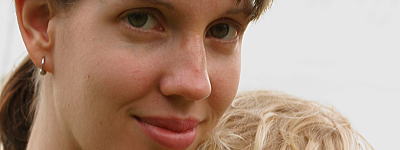
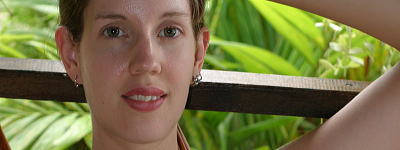


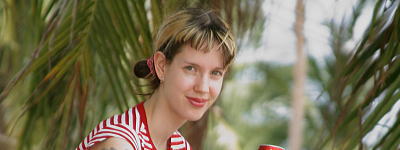
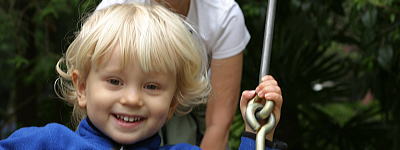
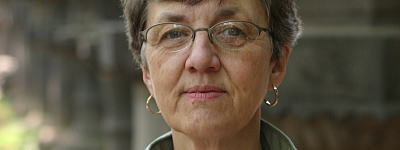
Today's pictures are a belated Mother's
Day
tribute.
As I've grown older and become a father,
Mother's Day has taken on a new meaning
for
me. It used to be about showing appreciation
to my mother for all of the hard work
that
she did for me, now its about showing
appreciation
to my wife, Karen, for all of the hard
work
that she does for our son Jack.
Mother's day really is a great idea, because
hey, when you stop to think about it, where
would we be without the women in our life
who nurture and support us.
Thanks to you all. I love you.
And on a related note, this seems like the
ideal time to make an announcement: Karen
and I are going to have another baby. The
little guy is due the first week of December.
I guess those romantic Thai beaches worked
their magic after all.
|
|
|
 |


37 comments so far